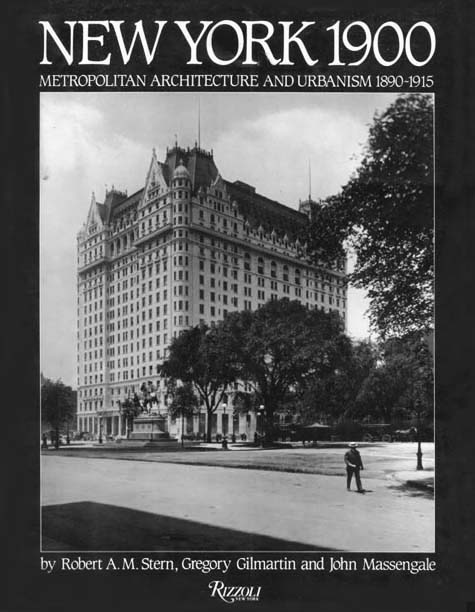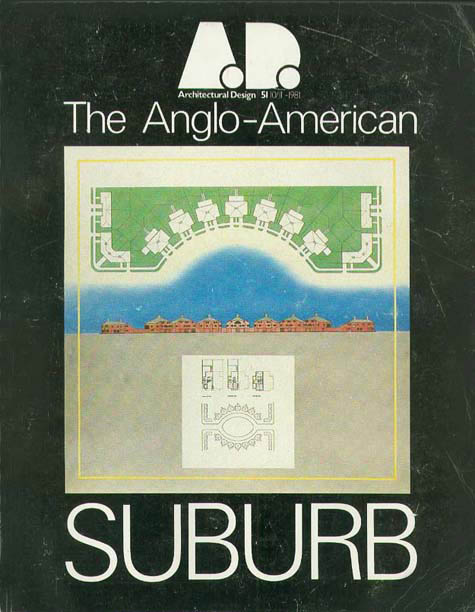EARTH DAY reminded me of my old friend Konrad Oberhuber, an art historian at Harvard when I met him, who later became the Curator of the Albertina in Vienna. In 1983 I went on a Fogg Museum trip to Prague with Konrad and others. Czechoslovakia was the first Communist country I visited, and I thought the citizens of Prague were the most oppressed people I had ever seen.
Our group started talking about the mood of the city one day, which led Konrad to tell us about his theory of cycles in history. He had been in Prague during the 1968 democratic protests and the violent Russian crackdown that followd (the Prague Spring – more on this below). The experience contributed to his saying to us that “at the end of 1989 every Communist government in central Europe will fall.” I had never heard anyone say anything like that. At the time, the Reagan administration followed what was known as the Kirkpatrick Doctrine, named after Jeanne Kirkpatrick, the United States’ ambassador to the UN. She said that it was inherent in the nature of the totalitarian governments in Central Europe that they would never voluntarily give up their power unless the United States forced them to. But 6 years later, when every central European Communist government but one peacefully handed over the reins of power between late August and early January, Konrad looked like a genius.
Konrad’s theory came out of his Anthroposophical beliefs (Anthroposophy being the philosophy of Rudolf Steiner, a late-19th, early 20th century German mystic perhaps best known today for Biodynamic agriculture and Waldorf schools). Konrad (and Steiner?) said that history repeated in hundred-year cycles, and that different decades had different roles in these cycles. The fifties, he said, expressed the essence of the century. The American Fifties, for example, were about the rise of the middle class, the hegemony of Modernism, American prosperity, America as a world power, etc.
The Sixties, according to Konrad, foreshadowed the next century, with some intermediate steps along the way. He brought this up because he lived in Prague in 1968 during the Prague Spring, when democracy briefly flowered before Russia crushed the popular movement. “They haven’t forgotten that time,” he said, “they’re just waiting to act again”—which happened at the end of 1989, just as Konrad predicted. And now, it seems to me, we are seeing many of the most important issues from the 1960s recycle in the present.
I’d like to write more about hundred-year cycles in history, because in my lifetime I’ve seen some. The PostModern Shingle Style revival came 100 years after Charles McKim and Stanford White invented the Shingle Style during their famous sketch tours of Colonial houses up and down the New England coast (see Vincent Scully, The Shingle Style Today: Or The Historian’s Revenge). The trips were made to look at American Colonial architecture for the American Centennial in 1876, but it wasn’t until the early 1890s that McKim, Mead & White began a true Colonial Revival. That was the same time that they started designing genuinely Classical buildings.
The Classical art and architecture of the 1890s became known as the American Renaissance. At the same time, the City Beautiful movement started up, and the World’s Columbian Exposition (the Great White City) was held in Chicago, to mark the 400th anniversary of Columbus landing in America. The exposition was planned to open in 1892, but actually opened a year late in 1893. One hundred years later, in 1993, the Congress for New Urbanism was founded. The Institute for Classical Architecture was founded in New York in 1991. It later merged with Classical America, which was founded in 1968, during the Prague Spring.
Some more: the 1880s and 1890s were two decades when the largest fortunes in the history of the world were created (many on Wall Street and in American industry). Those fortunes remained the largest in the world until 100 years later, when Wall Street transformed the way it worked and the digital and computer revolutions began. What followed in the early 20th century was the Progressive Era, to reform the drastic changes in American Society at the end of the 19th century. We’re a little behind the times there. There’s plenty of talk, but Big Money is beating the Progressives, so far.
Konrad wanted to write a book about cycles in history, but he died before writing it. I’m not 100% convinced, but there are a lot of things that happened in the 1960s that seem to be important issues now. I might add that having lived through the 1960s, they seemed like they began in 1963, built to a peak in 1967 (Summer of Love), 1968 (Prague Spring, Paris Student Riots, Chicago Democratic Convention), and 1969 (Woodstock), and ended in 1973 or so. The Vietnam War didn’t end until 1975, but Vietnam demonstrations began in 1963 and the war was one of the major issues in the Presidential election of 1968. Most of the American race riots were 1962-63 and 1967-68.
PostScript: On May 29, 2020, the President of the United States Tweeted about what he called the “THUGS” on the street in Minneapolis following George Floyd’s murder by Minneapolis police, writing, “When the looting starts, the shooting starts.” This echoed the same words from Miami’s Police Chief in 1967, which preceded three days of riots outside the GOP convention in Miami in August 1968.
Sixties > Now
Environmentalism & The Limits of Growth > Climate Change
Civil Rights Act > Black Lives Matter
Feminism & Equal Rights Amendment > MeToo
Immigration Act of 1965 > DACA
Medicare, 1965 > Obamacare
Stonewall & Gay Pride > Transgender & Gay Marriage
Organic Farming & Chez Panisse > Foodies & Farm to Table
Hippies & Back to the Land > New Ruralism*
Penn Station demolished > Rebuild Penn Station
Cycling & Streets for People > Vision Zero & Congestion Pricing
Cycling & Pedestrian Malls > Bike Lanes & Walkability
Streets for People > Streets for People
Bobby Kennedy, Eugene McCarthy, George McGovern > Barack Obama, Bernie Sanders*
Woodstock, Summer of Love & Vietnam Protests > March For Our Lives?
Prague Spring > Arab Spring
Marijuana > Legalized Marijuana
LSD > How to Change Your Mind: What the New Science of Psychedelics Teaches Us About Consciousness, Dying, Addiction, Depression, and Transcendence (2018 book by Michael Pollan)
..and the backlash
Voting Rights Act of 1965 > “Voter Fraud” & Voter Purges
Immigration Act of 1965 > The Wall
George Wallace, Presidential Campaign > Donald Trump, President
Richard Nixon, resigned before he was impeached > Donald Trump, we can only hope
Events
Civil Rights Acts of 1960 and 1964
Freedom Riders, 1961
First all-electronic calculator, 1961
Race Riots, 1962-1973
Vatican II (Second Vatican Council-vernacular mass) 1962-1965
Strøget (Copenhagen pedestrianization), 1962
Bicycling (first cycling magazine), 1962
Clean Air Act, 1963
Martin Luther King, “I have a dream…,” 1963
Pennsylvania Station demolished, 1963
First Historic Preservation Program (Columbia), 1964
Speakeasy (OOPS computer language), 1964**
Black Panther Party, 1965
Voting Rights Act, 1965
Immigration and Naturalization Act, 1965
Brooklyn Heights First Historic District in NYC, 1965
NYC Landmarks Preservation Committee, 1966
NOW (National Organization for Women), 1966
Summer of Love, 1967
Classical America, 1968
Jane Jacobs stops Robert Moses’ Manhattan Expressway, 1968
Chicago Democratic Convention Riot, 1968
Paris Student Riots, 1968
Prague Spring, 1968
Classical America, 1968
Stonewall riots, 1969
Think Global Act Local (Friends of the Earth), 1969
Mayoral Candidate Norman Mailer Proposes Car Free Manhattan, 1969
Woodstock Music & Arts Fair, 1969
C (early systems programming language), 1969-73**
Earth Day, 1970
Chez Panisse (locavore), 1971
International Federation of Organic Agriculture Movements, 1972
Pruitt Igoe 1972
Ms. magazine, 1972
Roe v Wade 1973
First oil crisis, 1973
Books
Jane Jacobs, The Death and Life of Great American Cities, 1961
Rachel Carson, The Silent Spring, 1962
Betty Friedan, The Feminine Mystique, 1963
Malcolm X & Alex Haley, The Autobiography of Malcolm X, 1965
Stewart Brand, The Whole Earth Catalog, 1968
Paul Ehrlich, The Population Bomb, 1968
Bicycling magazine, 1968 (1961 newsletter, grew)
William H. Whyte and Tony Hiss, The Last Landscape, 1968
Bernard Rudofsky, Streets for People, 1969
Charles Reich, Greening of America. 1970
Club of Rome, The Limits to Growth, 1972
E.F. Schumacher, Small is Beautiful, 1973
* Bernie Sanders (and many others) moved to the Vermont woods in 1968.
** Wikpedia: “The period from the late 1960s to the late 1970s brought a major flowering of programming languages. Most of the major language paradigms now in use were invented in this period.”
The March For Our Lives, March 24, 2018:
Photos from the 1960s:







